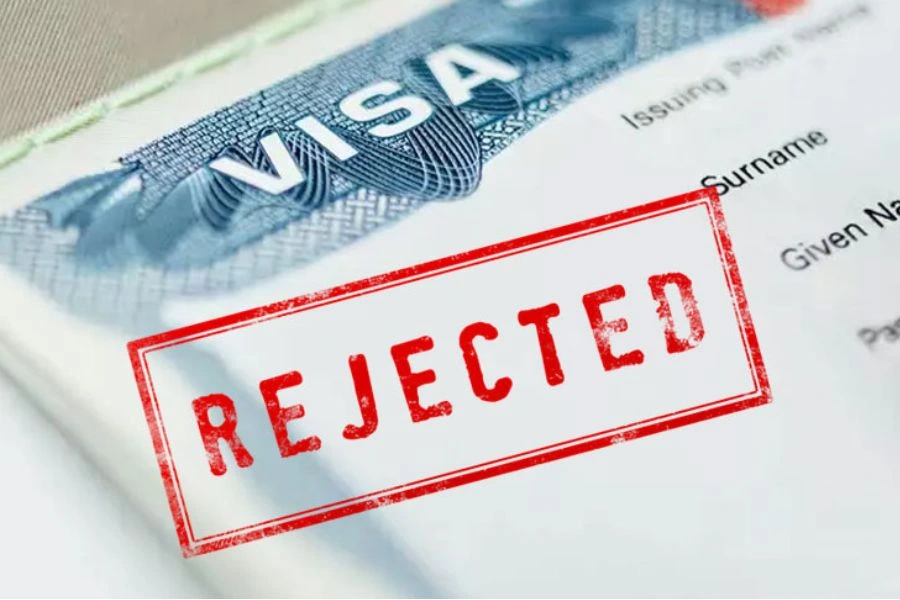Visa rejections can be disheartening, especially when your plans, studies, job, or even your permanent move hinge on that little stamp of approval. If you’ve just received the dreaded “visa refused” notice from Australia, don’t panic just yet. In 2025, you still have options, and one of the strongest is filing an appeal. But how does it work? Is everyone eligible? And most importantly, can you turn that “no” into a “yes”?
Let’s break down everything you need to know about appealing a rejected Australian visa in 2025—and how to give your application a second shot.
Key Takeaways
Why Australian Visas Get Rejected in the First Place
Before diving into appeals, it helps to understand why your visa was refused. The Australian Department of Home Affairs typically provides a reason in your refusal letter. Common grounds include:
- Insufficient financial evidence
- Incomplete documentation
- Failure to meet health or character requirements
- Genuine Temporary Entrant (GTE) doubts for student or visitor visas
- Inconsistencies or contradictions in your application
In 2025, there has been an increased focus on the GTE criteria, especially for students from high-risk countries. Immigration officers are also scrutinizing ties to your home country more than ever.
Understanding the reason for refusal is step one in crafting a strong appeal. This isn’t about sending the same documents again—it’s about addressing the specific reason they said no.
Also Read: What Are the Financial Rules for Sponsoring a Spouse in Australia?
Can You Appeal Your Australian Visa Refusal?
Not everyone can appeal a rejected visa, unfortunately. Your eligibility largely depends on where you applied from and what type of visa it was.
If you were in Australia when your visa was refused, there’s a strong chance you can appeal with the Administrative Appeals Tribunal (AAT). This applies to many common visas, like:
- Student visas
- Partner visas
- Skilled work visas
- Visitor visas (if lodged from within Australia)
However, if your application was made outside Australia, you typically cannot appeal to the AAT. That said, certain offshore partner or family visas may still be eligible, depending on your circumstances.
If you’re not sure whether you’re eligible to appeal, this information will usually be stated clearly in your refusal letter.
Where and How to File a Visa Appeal in Australia (2025 Update)
In 2025, all visa appeals in Australia will go through the AAT, unless stated otherwise. Here’s how the appeal process works:
1. Lodge the Appeal Online
You must submit your appeal through the Administrative Appeals Tribunal (AAT) website. You’ll need your TRN (Transaction Reference Number) or application ID from your original visa application.
2. Time is Critical
You typically have 21 to 28 days from the date of refusal to submit your appeal. Miss this window, and you lose the right to challenge the decision. There are no extensions, even if you have a solid reason.
3. Pay the AAT Fee
In 2025, the visa appeal fee is approximately AUD 3,374. If your appeal is successful, you may get a partial refund of about 50%, but that’s not guaranteed.
4. Prepare Your Case
This is not just a resubmission—it’s a legal review of your case. You need to prepare new documents, write a personal statement, and explain why the refusal was incorrect. Some applicants also bring in legal or migration assistance to help them prepare.
What Happens After You Lodge Your Appeal?
Once your appeal is lodged, the waiting begins. As of 2025, the AAT is still dealing with a backlog of cases, so processing times can range from 3 months to over a year, depending on the type of visa.
During this time, you might be granted a bridging visa if you were in Australia when you lodged your appeal. This allows you to legally stay in the country while your case is under review. However, your bridging visa conditions—like work rights or travel permissions—will vary depending on your specific case.
Also Read: Study in Australia for Free with UWA’s 2026 Research Scholarships
When your turn comes, the AAT may invite you for a hearing, either in person, via phone, or video call. You’ll have the opportunity to present your case and provide any additional evidence or testimony.
What Are Your Chances of Winning a Visa Appeal in 2025?
A successful visa appeal depends heavily on how well you prepare your case. The AAT doesn’t approve cases just because you’re hopeful—they need concrete evidence and strong reasoning. If you’re simply reusing the same documents and expecting a different result, it’s unlikely to go your way.
However, many applicants do win on appeal when they:
- Address the refusal reasons directly
- Provide new or missing documents
- Clarify inconsistencies in their original application
- Demonstrate genuine intention and strong ties
A 2024 AAT report showed that around 34% of visa appeals were successful. While that’s not an overwhelming majority, it shows that solid appeals do work, especially when supported by strong documentation and sometimes, professional help.
Should You Hire a Migration Agent or Lawyer?
This depends on how complex your case is. If your visa was refused due to missing paperwork or a minor technicality, you might be able to handle it yourself. But if the refusal was based on character issues, fraud allegations, or GTE concerns, then a registered migration agent or immigration lawyer could make a significant difference.
Please note that not all migration agents are lawyers, and not all lawyers are familiar with immigration appeals. Make sure they’re MARA-registered and have relevant experience.
What If Your Appeal Is Unsuccessful?
If the AAT affirms the original decision, your visa refusal stands. Your next steps could include:
- Judicial review in the Federal Circuit Court (only for legal errors)
- Reapplying with a stronger application (in some cases, this is the best option)
- Voluntarily departing Australia if you’re no longer lawfully able to stay
Reapplication is often cheaper and quicker than judicial review. But if you believe the AAT made a legal mistake, seeking a lawyer’s advice for judicial review may be worthwhile.
Final Thoughts: Don’t Let One Refusal Define Your Journey
Having your Australian visa rejected is tough, but it doesn’t mean the door is closed forever. In 2025, the appeal system offers a second chance if you act quickly, understand the reason for the rejection, and build a case that truly addresses the department’s concerns.
Reference: https://www.legalaid.vic.gov.au/appealing-visa-decision

Karan Rawat
Content strategist and Full-time editor of The Immigration World. Karan focuses on simplifying complex immigration rules and scholarship opportunities into clear, practical guidance for global readers. Passionate about making international relocation easier for everyone.





